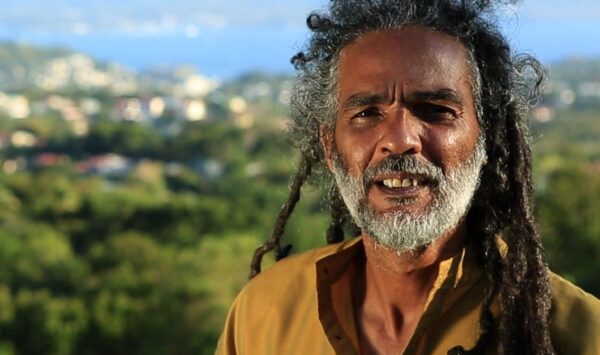French-Caribbean artist Jean-Marc Monnerville, better known as Kali, the 1992 French Eurovision entrant in Malmö, released a brand new album titled C’est l’éveil (Awakening) a few weeks ago. The singer chose the track also entitled C’est l’éveil as a first single and a shot a brand new video.
The Martinique-born singer and musician had brought to the Eurovision Song Contest the very first entry sung in Antillean Creole language, making the Caribbean particularly proud when reaching the 8th place with Monté la riviè and his famous banjo. His Eurovision participation brought him increasing popularity in the West Indies and international fame, touring the world, releasing many successful albums and collaborating with a good number of international artists.
After a series of very personal records, including the successful series of albums Racines, with some very powerful lyrics regularly angering conservatives and certain Caribbean nationalists, Kali progressively started spending most of his time in his native Martinique, worrying and singing against the pervasive influence of globalization.
Kali is today releasing a brand new album titled C’est l’éveil (Awakening). A new album in which the talented singer and musician gives a unique rendition of a few psalms taken from the Bible on Nyabinghi drum rhythms. Kali teamed up with some very prestigious Caribbean artists, including his own son Nazareken, to produce this new album.
The first single, also titled C’est l’éveil, is a true ode to tolerance. The music video was shot in no less than 3 different places: in Paramaribo, capital city of the former Dutch South American colony Surinam ; in the Paddock village in St-Laurent-du-Maroni in neighbouring French Guiana as well as in its capital city Cayenne; and last but not least in Kali’s beloved French Caribbean island of Martinique.




